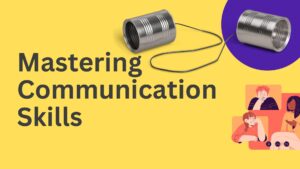How to Speak English Fluently
Welcome to today’s English lesson. This post will help you improve your speaking skills.
How to Speak English Fluently
Speaking English fluently is a dream for many people around the world. Whether you want to get a better job, travel, study abroad, or simply feel confident in conversations, fluent English can open many doors. But how do you become fluent in English, especially if it’s not your first language? The good news is that anyone can improve their speaking skills with the right techniques and regular practice.
In this article, we’ll explore the best methods to speak English fluently, step by step. These tips are practical, easy to follow, and work for learners of all levels.
Understand What Fluency Means
Fluency doesn’t mean speaking like a native speaker or having a perfect accent. It means being able to speak clearly, easily, and without too much hesitation. Fluent speakers can express their thoughts, understand others, and have conversations without struggling to find words.
So, don’t worry about sounding perfect. Focus on speaking comfortably and naturally.
1. Speak Every Day – Practice Is the Key
One of the most important steps in learning to speak English fluently is daily practice. Just like playing an instrument or a sport, the more you practice, the better you become.
- Talk to yourself in English while doing simple tasks.
- Describe your day or your feelings out loud.
- Record your voice and listen to your pronunciation.
If you can, find a language partner or join an English-speaking club. Speaking with others helps you gain confidence and learn from real conversations.
2. Think in English
This is a powerful habit. When you translate from your native language into English, it slows you down. Instead, train your brain to think directly in English.
Start with simple sentences like:
- “I am brushing my teeth.”
- “It is hot today.”
- “I need to buy vegetables.”
As your vocabulary grows, you can start forming longer thoughts in English. Over time, this reduces hesitation and helps you become more fluent.
3. Use Simple English First
Fluency doesn’t mean using complicated words. In fact, fluent speakers often use simple and clear English.
For example:
- Instead of saying “I am extremely delighted,” say “I am very happy.”
- Instead of “ascertain,” say “find out.”
Learn the most common English words and phrases. Mastering basic vocabulary gives you confidence and helps you speak without searching for words.
4. Listen to English Daily
Listening is closely connected to speaking. The more you listen, the more natural your speech will sound. Listen to:
- English podcasts and YouTube videos
- English news or radio shows
- English movies and TV series with subtitles
As you listen, try to copy the pronunciation, rhythm, and tone of native speakers. This technique is called shadowing—you listen and repeat immediately after the speaker. It improves fluency, pronunciation, and speaking speed.
5. Learn Phrases, Not Just Words
Instead of memorizing single words, learn phrases and sentence structures. This makes speaking easier because you already have chunks of language ready to use.
For example:
- “Can I help you with that?”
- “What do you think about it?”
- “I’m not sure, but I can check.”
Phrases make your English sound more natural and fluent.
6. Don’t Be Afraid to Make Mistakes
Fear of making mistakes is a big barrier to fluency. Remember, mistakes are part of learning. Even native speakers make mistakes sometimes!
Be brave. Speak even if you’re not 100% sure. The more you speak, the more you’ll improve. Most people will appreciate your effort and help you if needed.
7. Improve Your Pronunciation
Fluent English also means being understood easily. Work on clear pronunciation of common sounds.
You can:
- Use apps like Elsa Speak or Google Pronunciation.
- Watch pronunciation videos on YouTube.
- Read aloud every day for 5–10 minutes.
Start with easy texts, then try short stories or articles. Reading aloud improves your speaking fluency and pronunciation at the same time.
8. Use English in Real-Life Situations
Use English whenever possible in real life:
- Order food in English if you’re in a restaurant that allows it.
- Write your shopping list in English.
- Talk to your friends in English for 10 minutes a day.
Even chatting online or writing comments in English helps. Real-world use is one of the fastest ways to improve fluency.
9. Learn from Your Favorite Topics
When you enjoy the topic, you learn faster. Practice speaking about things you love—sports, music, movies, food, or travel.
You can:
- Join English groups related to your interests.
- Watch English videos about your favorite hobbies.
- Practice telling stories or giving opinions on these topics.
This keeps learning fun and increases motivation.
10. Set Fluency Goals and Track Progress
Set small, clear goals like:
- “I will speak for 5 minutes every day this week.”
- “I will learn 10 new phrases this week.”
Keep a notebook or use an app to track your progress. Celebrate small successes! When you see improvement, you feel motivated to keep going.
Conclusion
Speaking English fluently is a journey, not a race. The secret to success is consistent practice, confidence, and positive habits. By thinking in English, listening daily, using simple phrases, and speaking regularly, you can improve quickly.
Remember, you don’t need to be perfect to be fluent. Fluency is about communication and confidence, not perfection. Start today, keep going, and enjoy your English-speaking journey!






































































2 comments